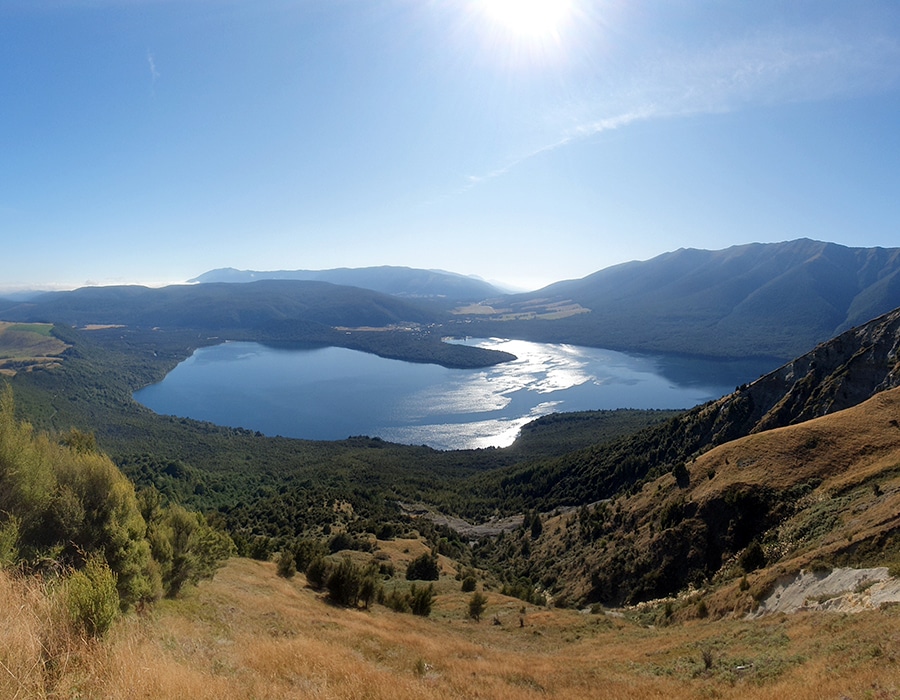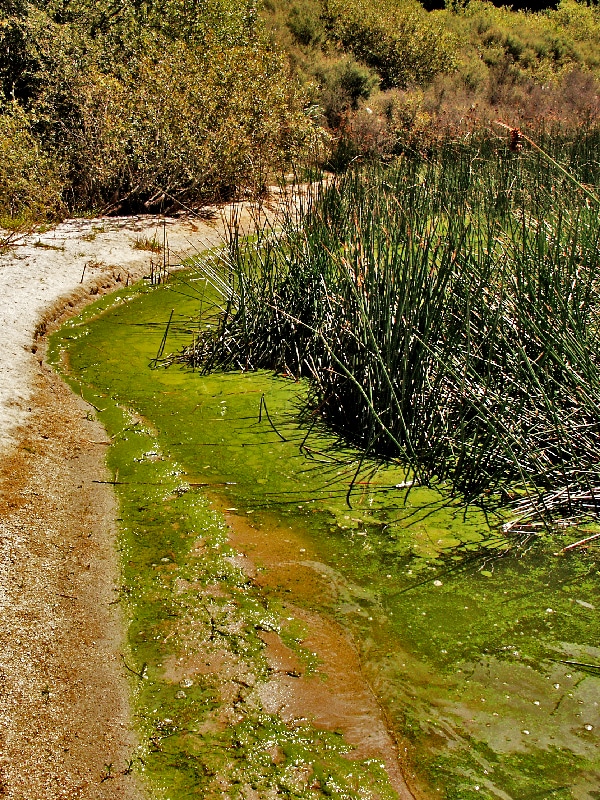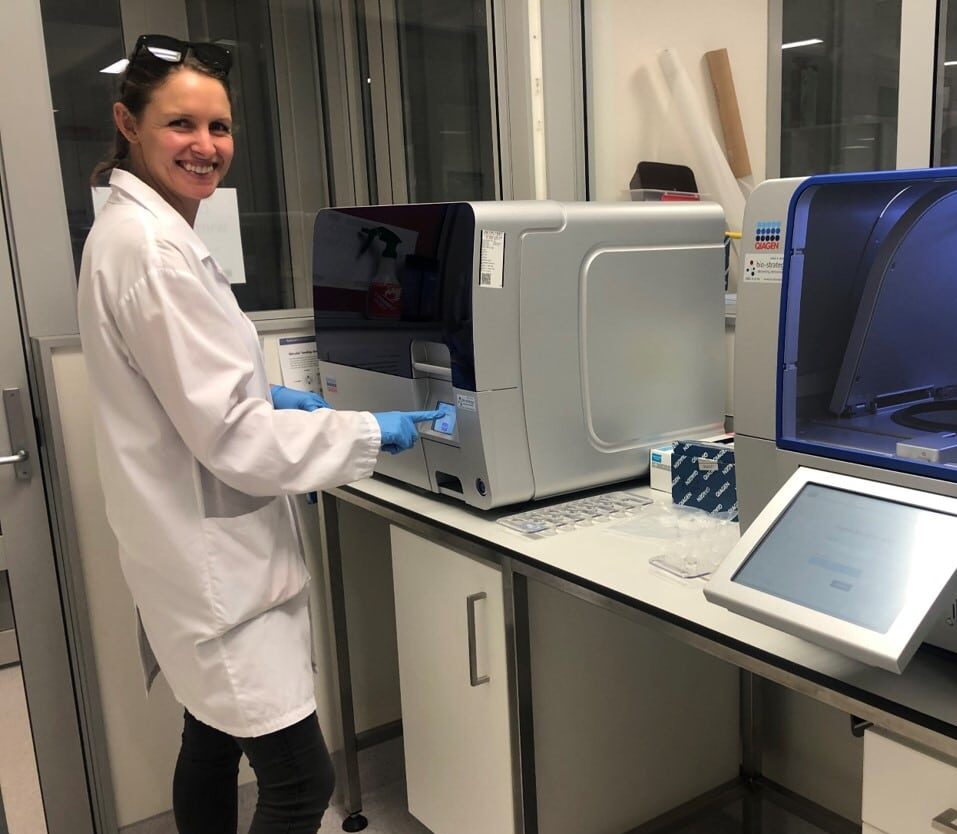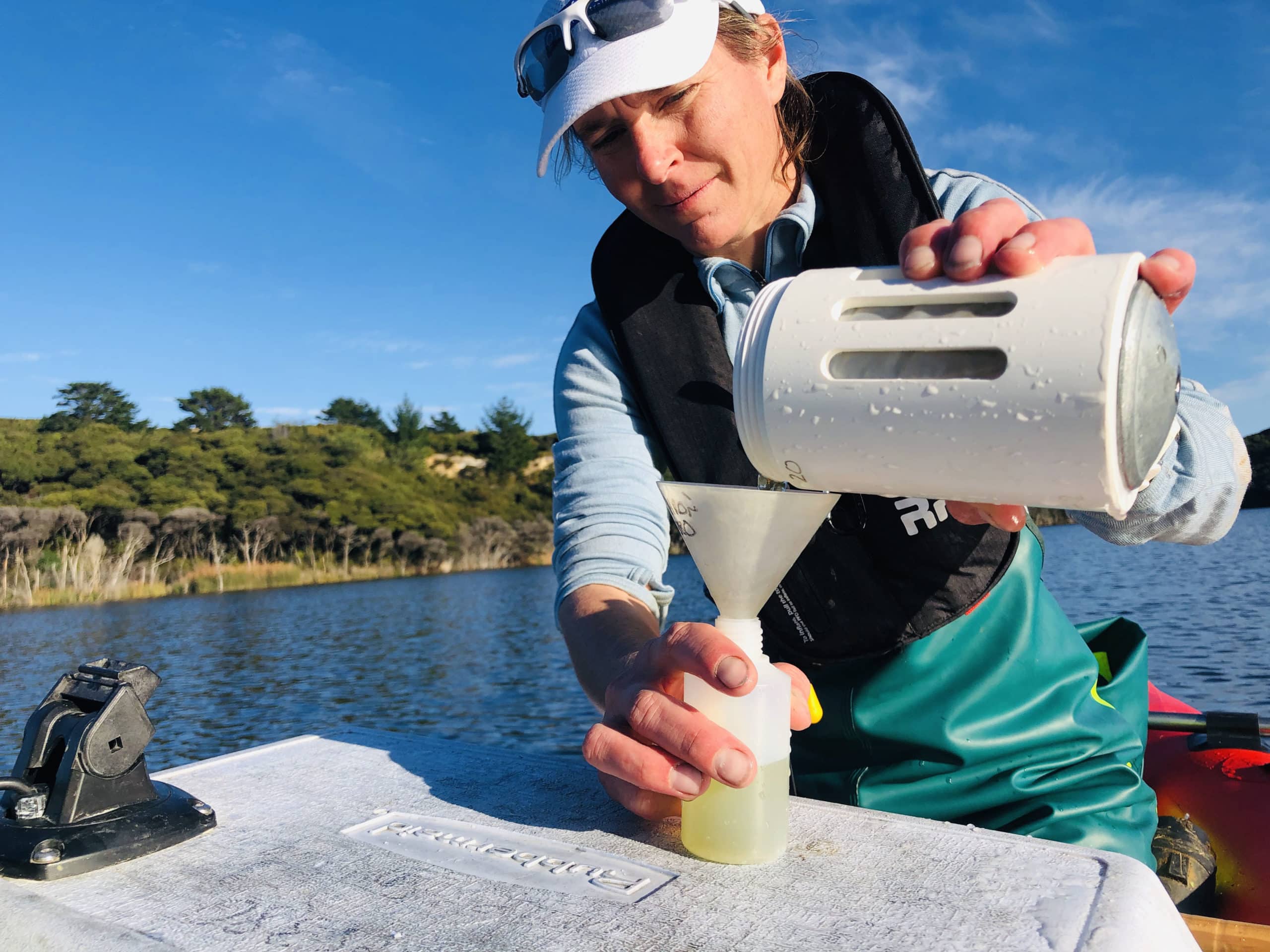July is Lakes Appreciation Month and to celebrate this we’ve canvassed some of the Lakes380 team to find out about what they value about lakes and to share stories of their taonga lake. Even though it’s now the end of July, that doesn’t mean that we can’t continue appreciating our lakes for the rest of the year – plan your next vacation around visiting a lake and create new memories with you whānau, join a planting day to help restore a lake, advocate to protect water quality with your local and national representatives, share your passion or knowledge on lakes with tamariki and rangatahi in your life.
Sean Waters – Cawthron Institute
Lake Pearson lies nestled in the mountains of the Canterbury high country, a landscape that tugs on my heartstrings. This is a lake that mirrors the surrounding hills and where a bunch of my life’s pathways seem to converge. I wrote my wedding vows on its shores and got married looking across its glassy waters. On less calm days I’ve surfed the nor-wester down the lake on a paddle board and scurried back to shore to warm up afterwards. Stretching away to the south is the Craigieburn mountain range, full of tussock and scree basins and peaks that friends and I have spent years exploring on foot, ski and bike. Over the years I’ve had two very different careers, but both of them have seen me spend time at Lake Pearson – one with soldiers swimming across the lake during training exercises and the other pulling sediment cores for Lakes380. On the lake’s shores I’ve removed wilding pines and enjoyed summer BBQs, swimming to freshen up from the Canterbury heat. When I stop and think about it – it really is a pretty nice place to while away some time – or your whole life!!!
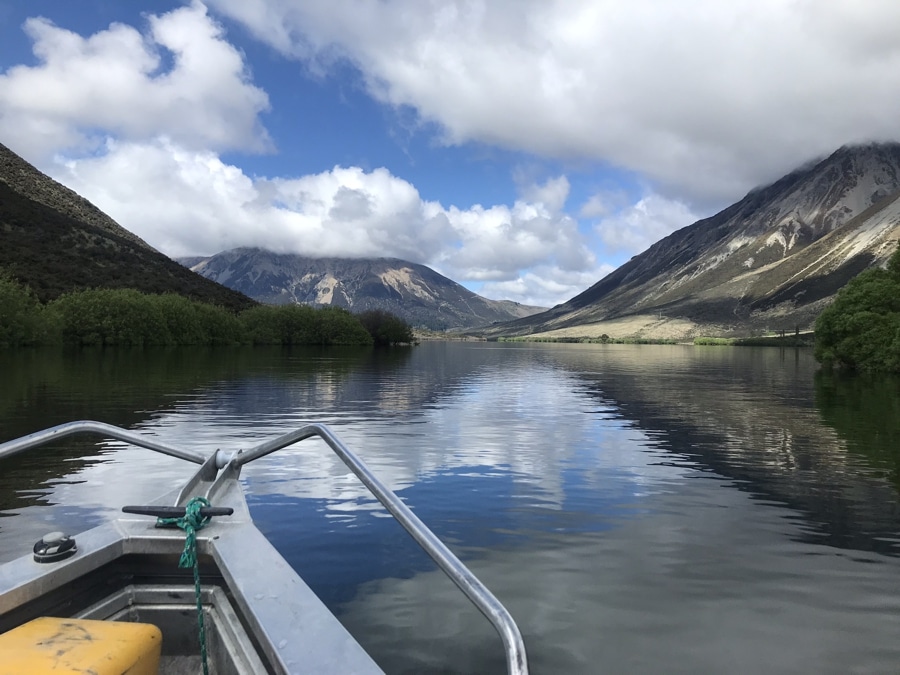
Lake Pearson in the Canterbury high country – Sean’s favourite lake
Rose Gregersen – Victoria University of Wellington
What do I love about lakes? I love the eerie, still feeling about lakes – there is so much below the surface that you cannot see. This unknown has always sparked my imagination. I love that no matter where I am in the world, lakes all have this same feeling. Spending time in and around lakes is like my human reset button – a humbling reminder that gives me a deep appreciation for not just lakes, but for all natural environments.
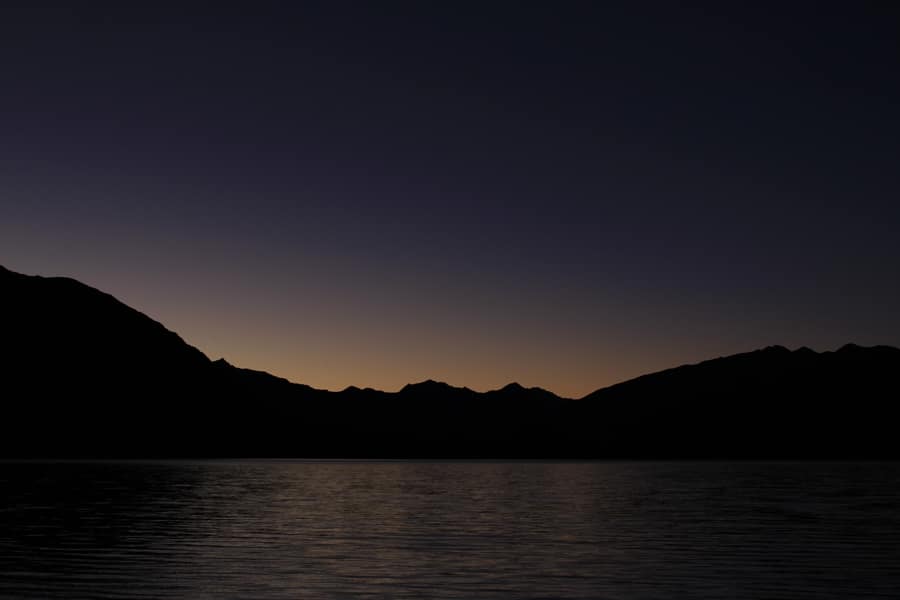
The twilight haze over Lake Te Anau captured by Rose on a camping trip
Kiely McFarlane – Cawthron Institute
One of my favourite things about lakes is their sense of weightiness and permanence. They are these huge volumes of water that bring stillness to a landscape, creating enduring connections among communities and across generations, and soaking up and preserving our history. I went to school on the shores of Lake Pupuke, and spent far too many classroom hours staring out at its deep dark waters. We were told that the thick mats of aquatic weeds meant that no one knew how deep it was, and made it dangerous for swimming. Yet our dragonboat teams were out on the water practicing every morning, and in the summer there would be small rafts of Optimists and kayaks out there too. We took water quality samples from the lake edge – until the resident swans chased us away – and in the summers we would read news articles about algal blooms in the adjacent Quarry Lake. However, for many years previously, Lake Pupuke had supplied drinking water to North Shore residents. Years spent on Lake Pupuke’s margins made me appreciate that lakes are living entities, despite their seeming permanence, and that we too are part of these amazing ecosystems. Our ability to continue to use and enjoy these taonga will therefore depend on the care and respect we show them.
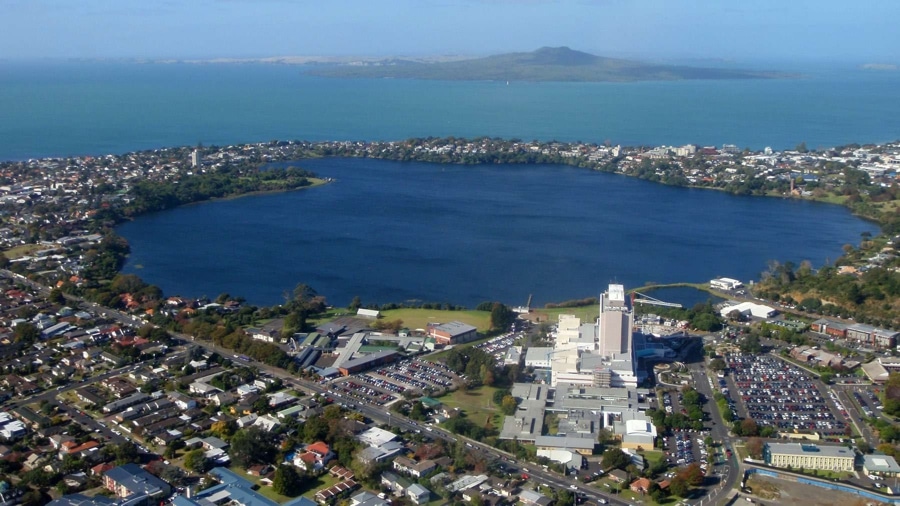
Lake Pupuke on the North Shore of Auckland – Kiely McFarlane’s taonga lake.
Georgia Thomson-Laing – Cawthron Institute
Nothing quite calms the soul and connects you with nature more than sitting on the shores of a gently lapping lake, fringed with native beech trees, small sandy beaches, tui and korimako belling in your ears, an assortment of waterfowl leaving behind watery trails on the otherwise still lake surface. This is my memory of childhood trips to the Nelson Lakes National Park, on the shores of Lake Rotoiti or tramping up to Rotomaninitua / Lake Angelus nestled amongst the alpine ridges of St Arnaud. For me, lakes are a place to spend time with family and friends, explore, think, and appreciate the beauty of New Zealand’s natural environment. I feel privileged to be able to now spend my energy and time researching lake ecology, encouraging others to connect with their local lakes and all with the goal to protect and preserve these tranquil sanctuaries of the natural world.
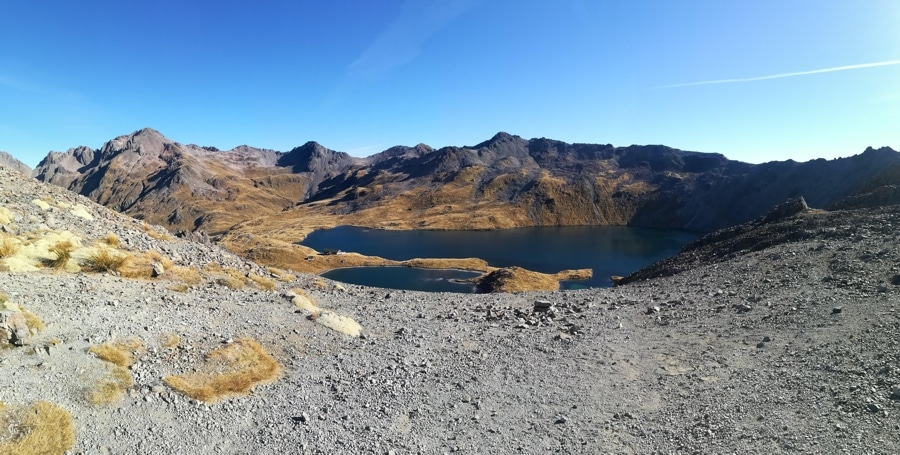
Tramping up to Lake Angelus/Rotomaninitua nestled in the St Arnaud Range.
Sebastian Naeher – GNS Science
I love lakes! My lake journey started with Swiss lakes and brought me across the globe to work on lakes in New Zealand. What do I love about them? As well as often being embedded in stunning mountain ranges that I love to explore, each layer of mud from the bottom of a lake tells a story about a different year in its history. By analysing this mud (or sediment) we can tell what the environment was like at that point in time and how it has changed since. It’s truly fascinating!!! Here I am at a tiny alpine lake close to Pizol Mountain in the Glarus Alps back in 2007 on one of many lovely weekend hikes in the Swiss mountains.
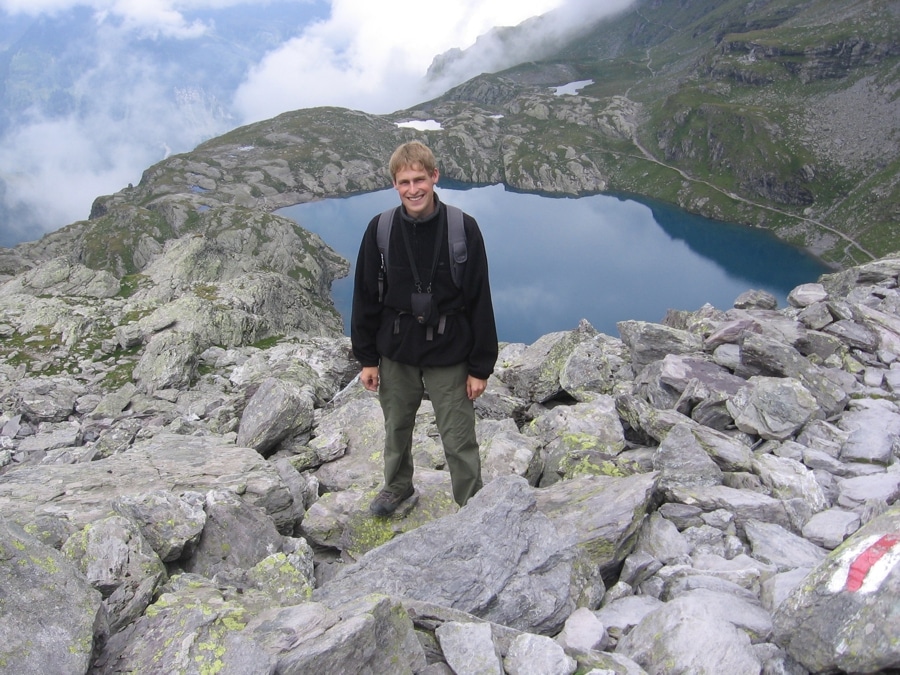
Sebastian visiting an alpine lake while hiking in the Glarus Alps in Switzerland
Dave Kelly – Cawthron Institute
The Canterbury region supports some of the most outstanding examples of high-country lakes in New Zealand and I view them as the jewel in the crown of Canterbury’s freshwater resources. The lakes have extensive natural heritage values, recreational values and cultural values, however, monitoring data from recent decades has demonstrated that they are degrading, and in some cases the degradation is rapid. These lakes are naturally unproductive (they have very low nutrient inputs), water clarity is high, and they often contain highly valued aquatic animals and plants. However, because these values are dependent on high water quality and the lakes have catchments that are of a relatively small size, they are susceptible to even small increases in land-use intensity that increase nutrient loads (e.g., fertiliser use). Understanding how we can manage land-use in a manner that maintains these high conservation values is a challenge we must aspire to if we want to protect lakes like those in the Canterbury high-country. On a personal note, I asked my wife to marry me on the shores of Lake Hawdon. So this lake in particular will always be special to me….she said yes!!
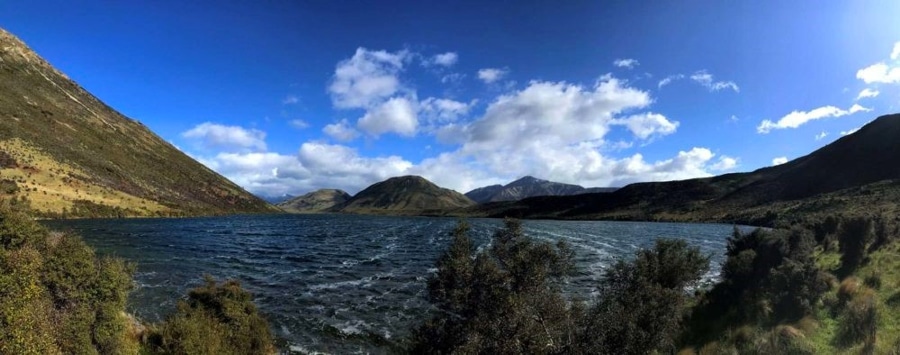
Lake Hawdon in the Waimakariri Catchment of North Canterbury where Dave proposed to his wife
Deniz Ozkundakci – University of Waikato
Lake Whangioterangi is a 32 m deep geothermal lake in the Waikato region that occupies a hydrothermal eruption crater and is 4 hectares in area (nearly 10 acres). The sides of the crater are sheer cliffs rising 20 m above water level, making it difficult to access although you have a great view of the lake from the cliffs. Lake Whangioterangi doesn’t contain fish or plants, which is probably due to the extremely low pH / high acidity of the water. Limited data suggests that the lake is ‘inversely stratified’ with a freshwater layer on top and a geothermal layer in the bottom. Fascinating!! Could this lake be one of the very few documented meromictic lakes in New Zealand? More research is desperately needed in geothermal lakes to better understand their natural characteristics and to identify threats and pressures to these amazing environments.
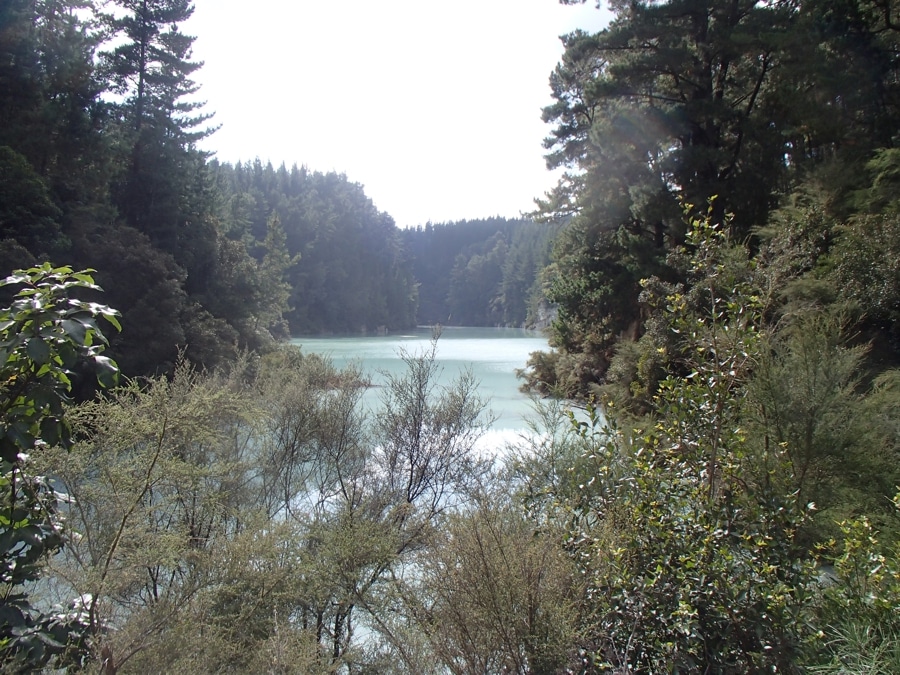
Lake Whangioterangi – a little studied geothermal lake in the Waikato region
Simon Stewart – Cawthron Institute
Lake Tarawera was my first, and most patient, teacher. Warm and inviting in summer, mirror calm and quiet in autumn, grey and moody in the winter and fierce and stormy in spring. It is ever changing, always beautiful and always providing. In my work, I quantify the transfers of energy and material within lake ecosystems. This gave me a physical appreciation for what we instinctively know – when we eat or drink from a lake, that lake physically becomes part of us. Lake Tarawera always looked after me and that is why I became a freshwater ecologist – to return the favour and look after Lake Tarawera. The better that we do looking after our lakes, the more that they will have the ability to look after us in the future.
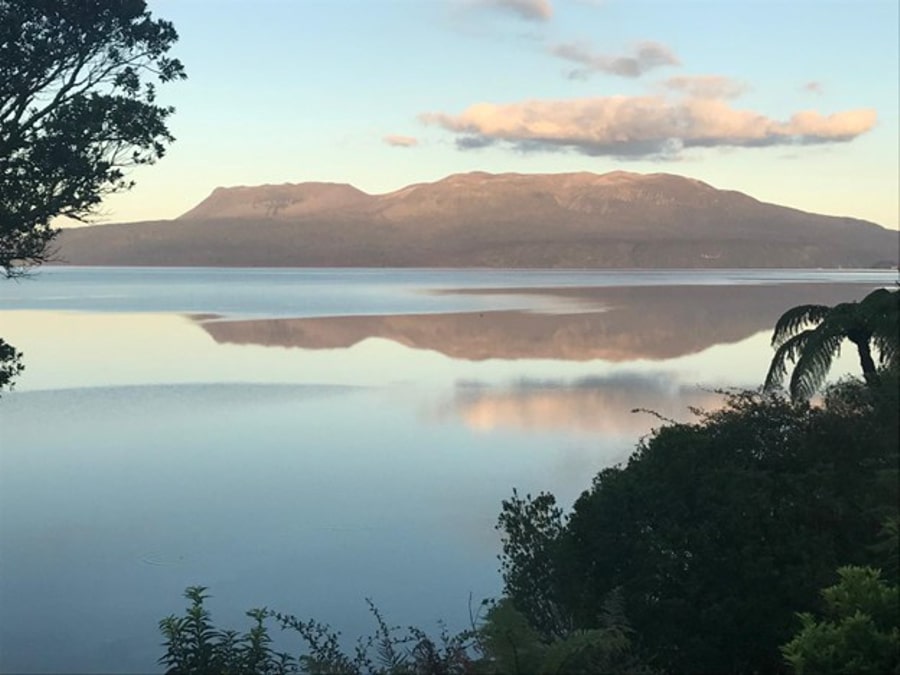
Lake Tarawera – Simon’s taonga lake (photo credit: Claire Cooper)
Andrew Rees – Victoria University of Wellington
Growing up in eastern Canada, lakes always meant fun times: a place to splash through gruelling summer heat or skate on during chilling winter cold. For better or worse, I grew up to become an academic and traded in my water pistol for more expensive toys. I’ve spent a lot of time working on lakes in Aotearoa, but it all started at Lake Pounui in the Wairarapa Moana. Through the years and kōrero, I’ve come to see lakes through different lenses. Lakes are ancestors that bind community. They are historians that archive environmental histories. They are, as Jonathan West calls them, mirrors that not only reflect changes on the land, but also in ourselves and our relationships. Given how much lakes do for us, the important question becomes: how do we advocate for these silent sentinels?
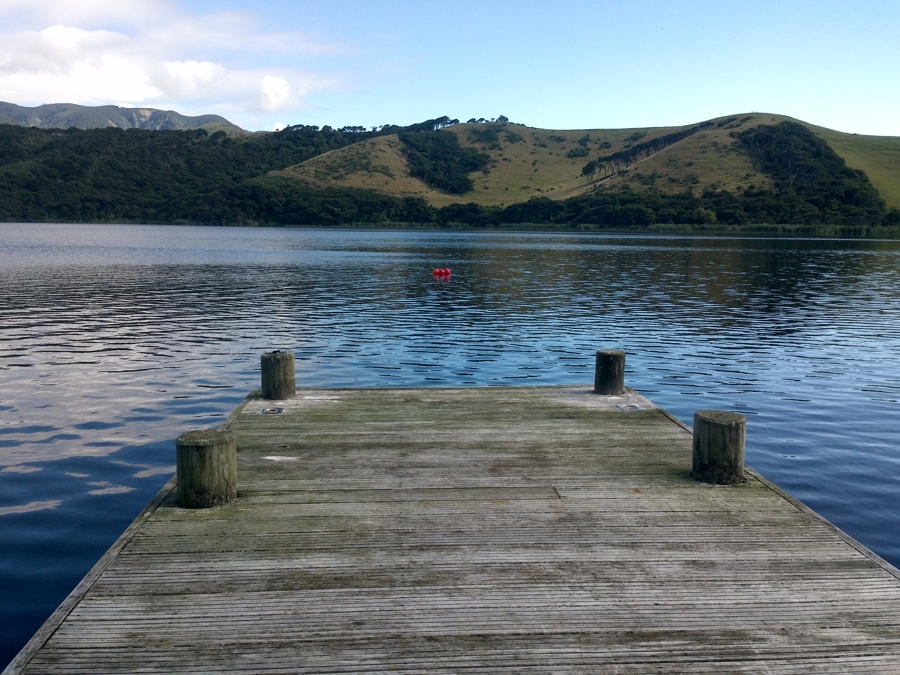
Lake Pounui in the Wairarapa Moana – where Andrew’s love of Aotearoa’s lakes began
Jonathan Puddick (aka JP) – Cawthron Institute
When I was growing up, my family visited Lake Waikaremoana in Te Urewera each winter. We would go for walks in the bush, fish for trout from the lake and soak up the serenity. The lake has supported many treasured memories for my family with many birthdays and anniversaries celebrated there; holidays spent learning from our parents, grandparents, aunties and uncles; and first-time experiences (catching a fish, playing in snow, discovering water bugs). Because of the time we spent at Waikaremoana when I was young, it has a special place in my heart and forms my mental image of a lake – deep, tranquil, clear, surrounded by bush.
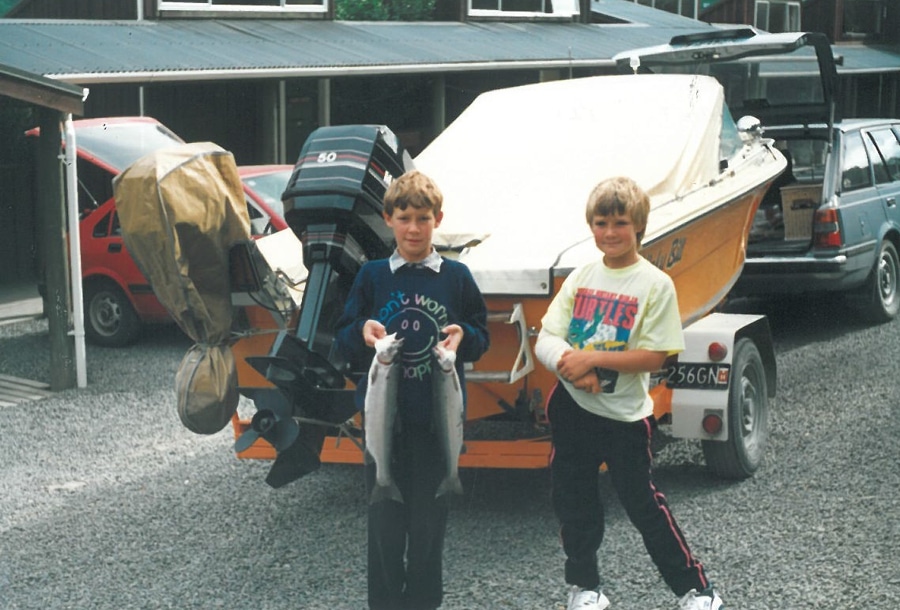
JP (on the right) and his brother at the end of a family vacation to Lake Waikaremoana

